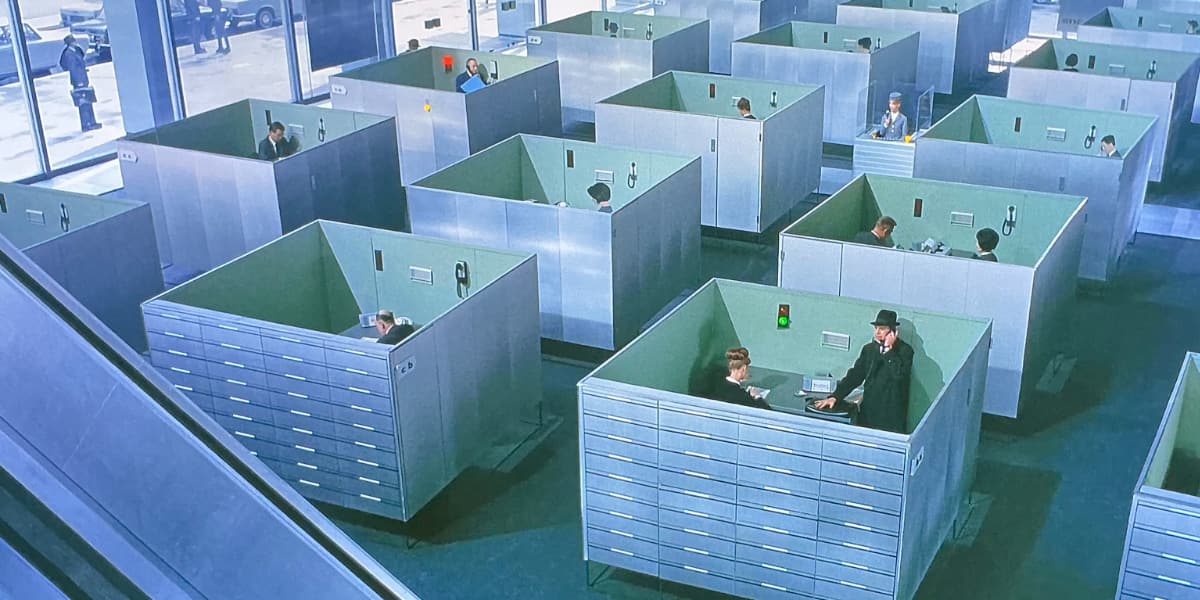
August 02 2025, 16:03
PlayTime
Director: Jacques Tati
Release year: 1967
Monsieur Hulot arrives in the centre of Paris to meet a man about some business, but his attempts to connect are thwarted by the distractions and mechanisms of a modern city. Other people come and go—tourists, businesspeople, tradesmen—culminating in a chaotic dinner at a the opening night of a new restaurant.
There’s no real plot to PlayTime. The city is the main character, a precisely rendered alternate reality where everything runs like a clockwork machine, the buildings full of box-like rooms, and the latest gadgets being presented and sold at all times. Hulot brings a clumsy humanity to the sterile environment, which is like a children’s book version of adult life.
The first half of the film presents a series of comical set pieces, each one bursting with small jokes and events in the foreground and background. It’s impossible to know where to look. I would imagine I would see more on a second viewing. Like the adult world, watching PlayTime is often amusing, but also repetitive and sometimes dull, even with so much going on. It’s like looking at an ever-changing piece of art in a gallery for two hours.
The second hour is mostly set in a newly opened restaurant with many jobs in the building still unfinished. Design mistakes cause staff to trip over, collisions, electrical faults, and all while an increasing number of people flow into the space, until the chaos of humanity overwhelms the architect’s vision, the music gets more raucous, and fun is had in spite of the collapsing dining room. Tati’s message seems to be that for all of modern life’s restrictions, people will find a way to connect and have fun.
All films in 2025’s #ArthouseSummer...
Previous: Morvern Callar | Next: Le Samouraï
